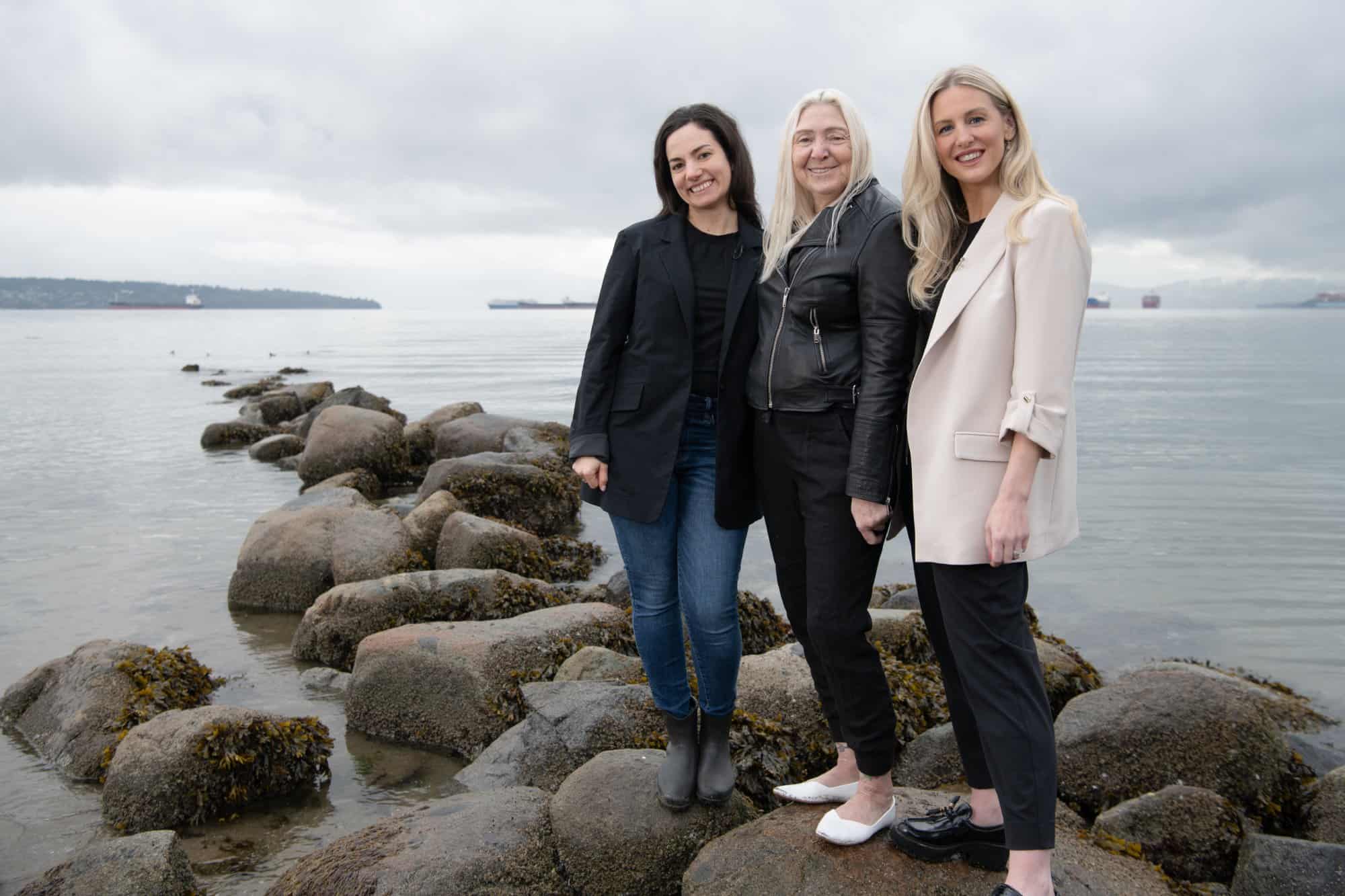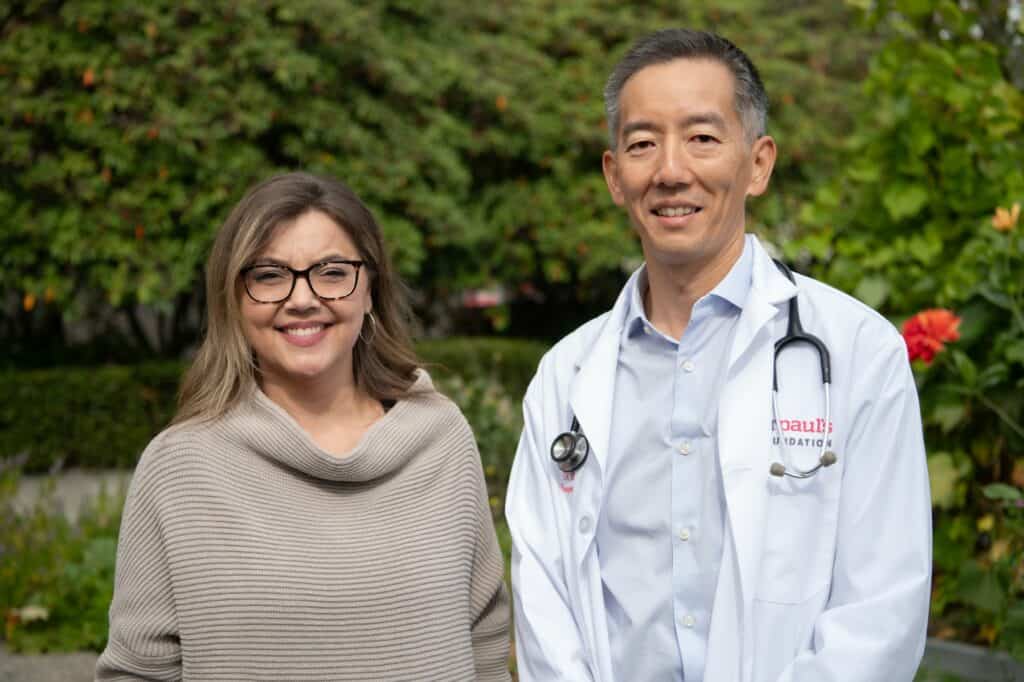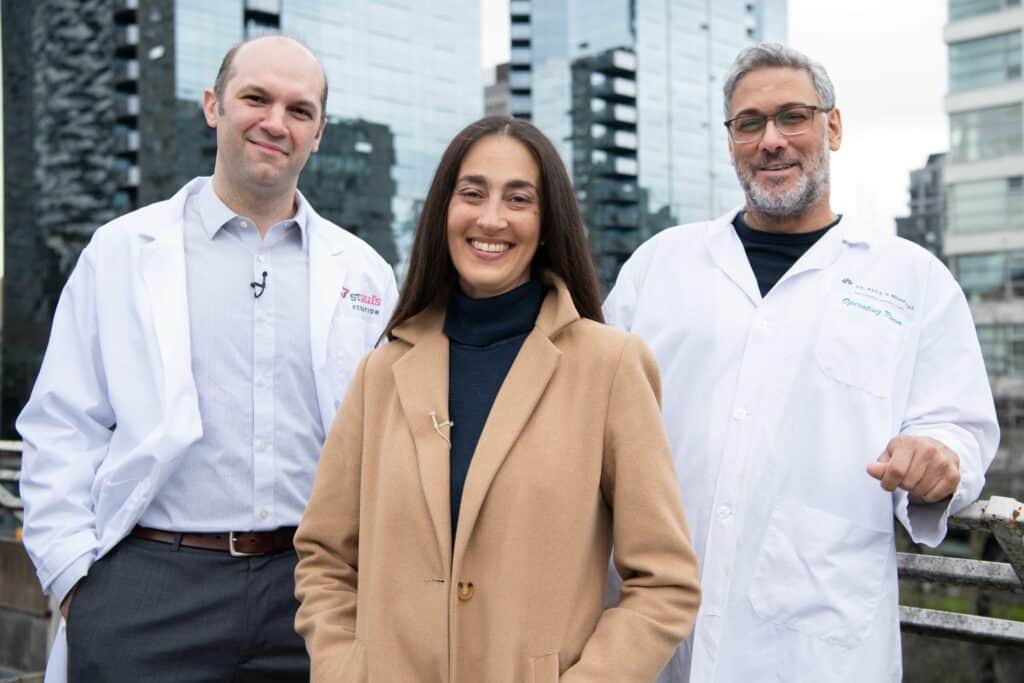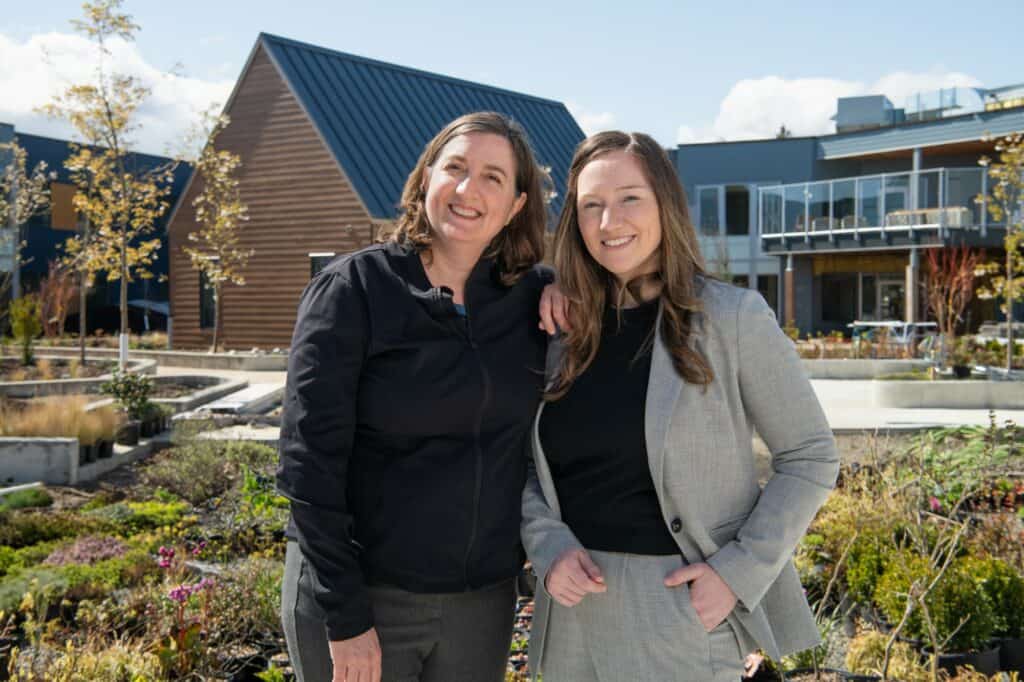Published Promise 2024
Last December, Dr. Brittany Dennis and her colleagues at Road to Recovery (R2R) were caring for a patient who was struggling with the hospital environment around the holidays. This patient was aching to reconnect with her community and craving the lifestyle activities she’d once enjoyed.
“We all got together and said, ‘What can we do to help her? What can we do to make her day just a little bit better?’,” Dr. Dennis says.
And so, staff sprung into action. An occupational therapist brought in a yoga mat. Staff exchanged the patient’s hospital garb for a yoga top and pants. They plugged in an essential oil diffuser to create a calming environment so their patient could fill her cup.
This is just one of the many ways that the Road to Recovery Initiative is meeting patients where they’re at, and providing compassionate care that goes the extra mile.
An urgent need for seamless substance use care
Six British Columbians die from an overdose every single day, and demand for addiction services is climbing. Providence operates the largest and busiest interdisciplinary Clinical Addiction Program in North America. Despite this, we need to do more to address worsening overdose deaths and promote long-term recovery.
Cue Phase 1 of the historic Road to Recovery Initiative (which launched in September 2023), a comprehensive, thoughtful, and trauma-informed system that ensures people can access addiction treatment when they may need or want it.
In BC, people with substance use issues face daunting hurdles – including a lack of stable housing, social supports, employment, financial resources, and access to safe medical care – that make it more challenging to avoid a relapse.
R2R is changing that.
“We’re able to have that seamless coordination of care that didn’t exist before,” says Dr. Dennis. “Road to Recovery is removing the barriers we’ve seen our patients face over and over again.”
Improving access to withdrawal management and transition beds
When a person is ready for recovery, they can frequently wait weeks or months for withdrawal management (detox). Once they’re admitted and complete the difficult experience of withdrawal, many have nowhere to go – and simply return to the situation that led them to use substances in the first place.
This cycle is distressing to physicians like Dr. Geneviève Kerkerian, an addiction medicine specialist who has been working at Road to Recovery since it opened.
“It’s heartbreaking at other detox facilities when people have to be discharged into the street until their treatment bed is ready, and that may be three months,” she says. “It’s unrealistic to expect that then they won’t relapse.”
R2R offers people a seamless transition between every stage of their recovery journey. It has drastically reduced wait times, ensuring access to those who need it most within much shorter time frames – often 24 to 72 hours. People begin their journey in withdrawal management beds, then can move into transition beds, and subsequently short-term stay beds – with plenty of support along the way – to set them up for success.
This entire process is patient-led, where staff meet people where they’re at and create individualized plans to meet their needs.
Multi-disciplinary, collaborative care unlike anywhere else in the country
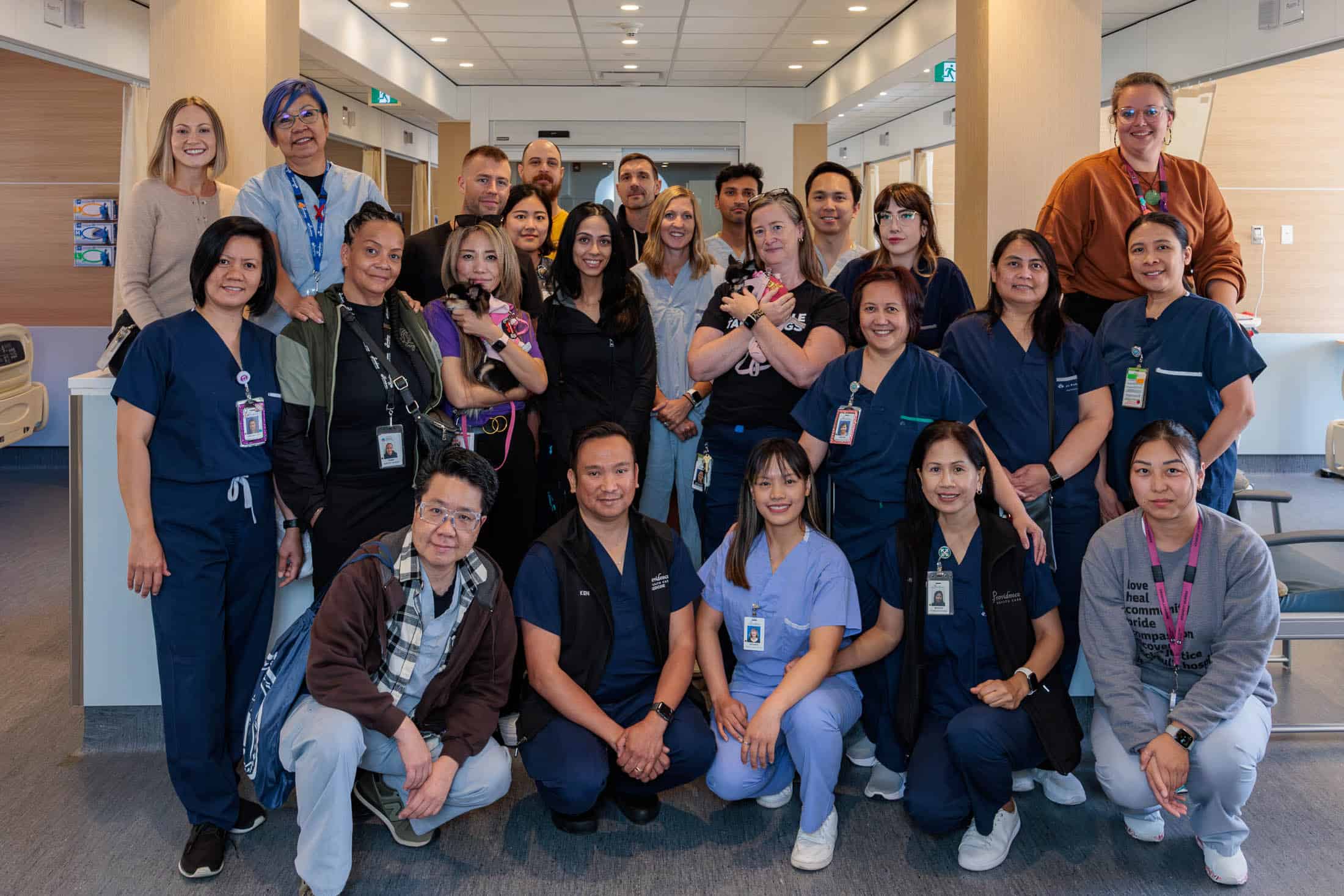
Many people who come to St. Paul’s Hospital for withdrawal management have additional health challenges. A unique facet of R2R is its wraparound care. Specialists around the building come directly to patients – some of whom haven’t seen a doctor in years – to address their acute and chronic care needs, so they don’t have to pause their addiction treatment to seek urgent medical care at an emergency department.
R2R collaborates with a gamut of medical specialties – including psychiatry, cardiology, gastroenterology, palliative care, orthopedics and plastic surgery – and allied health professionals such as occupational therapy, physiotherapy, pharmacy, and social work to facilitate care for patients.
“The system has been difficult for a lot of patients to navigate for so long,” says Dr. Dennis. “Breaking the silos and finally saying, ‘OK you’re here now, let’s get you that support you need’ is going to be the biggest game changer.”
Additionally, R2R offers Indigenous Wellness Liaisons through Providence’s Indigenous Wellness and Reconciliation team. They provide healing practices and cultural care including smudging, visits with Elders, sweetgrass, special blankets, and traditional foods. Peer support workers are also there to extend holistic, in-depth support.
As someone who has personal experience with the addiction recovery system, Karen Scott has been helping patients feel more comfortable as a peer support worker at St. Paul’s for over three years.
“It’s beneficial to have somebody you can speak to who’s not going to judge or stigmatize. I’m able to connect with people and let them know that they are valued,” she says. “A lot of patients have had bad experiences at the hospital, and I can relate. I’ve gone through that journey myself. I know how to be there for them, as I wish somebody had been there for me at the time that I needed it.”
Compassionate care is key
R2R sets itself apart with compassionate, patient-centred care. Whether that means setting up a patient with a yoga space or facilitating a visit with a patient’s beloved dog, staff are there to help them with their distinct goals and plans.
“You can’t fake compassion. Patients see it in our eyes, even if it’s a difficult conversation. They see it when we advocate for them,” says Dr. Kerkerian. “As a physician, it’s been really humbling and rewarding. It’s such a privilege to be able to take care of our patients, to have them share with us, and to have them trust us with their care.”
The R2R approach is working – and word is spreading.
Since September 2023, there have been nearly 300 people admitted to the unit for substance use care. The average length of stay is about five and a half days, which is significant because some people have struggled to stay in withdrawal management for more than a single day.
“I’ve seen a huge impact with patients’ trust in the system increasing, and they’re talking about it,” says Dr. Dennis. “I recently had a follow-up conversation with a patient who said, ‘I just want to thank you so much again. I felt human. I felt cared for. I felt comforted. I felt heard.’ And to hear people say that is just amazing, and it’s not something I heard before R2R.”
The growing future of Road to Recovery
“We walked through the door, and everybody was so welcoming. It brought tears to our eyes because it was like everyone is just so against us right now. And then you get these people [at R2R] that are just so warm and welcoming and treating us with such dignity and respect.”
R2R patient
We are in the midst of a substance use crisis. In 2021, there were 2,224 opioid-related deaths in BC – the highest number of overdose deaths ever recorded in the province and a 26% increase from just one year prior. Toxic drugs are now the leading cause of death for people between 19 and 39, with the toxic supply disproportionally affecting Indigenous Peoples.
Further phases of R2R over the next six years will offer more long-term beds, establish recovery services like counselling, medical care, and safe housing, embed Indigenous staff and resources, and provide virtual addiction care. Creating these services offers the unique opportunity to pilot and evaluate them before R2R moves into the new St. Paul’s Hospital.
Addiction is a medical condition that has no face. It touches all our lives, yet it is often invisible and incredibly stigmatized.
“We have to stop thinking this is someone else’s problem. Everyone is at risk for substance use,” says Dr. Kerkerian. “It’s a disease and you may not see it coming. It can surprise you, just like cancer.”
R2R, which was co-developed by PHC and the BC Centre on Substance Use, is partnered with Vancouver Coastal Health and is uniquely funded by the Province of BC and generous donors to the St. Paul’s Foundation, including the Diamond Family Foundation, Ronald S. Roadburg Foundation, and Peter Bull.
R2R is revolutionizing substance use care in a way that offers hope for the future.
“It has such a profound impact on the community,” says Dr. Dennis. “A lot of our patients are young. If we create a system of care that can rebuild so much of what we’ve lost, we are investing in the future. I can’t think of a more worthy endeavour to invest in.”
Together, we can ensure that all British Columbians can access high-quality substance use care when they need it.
